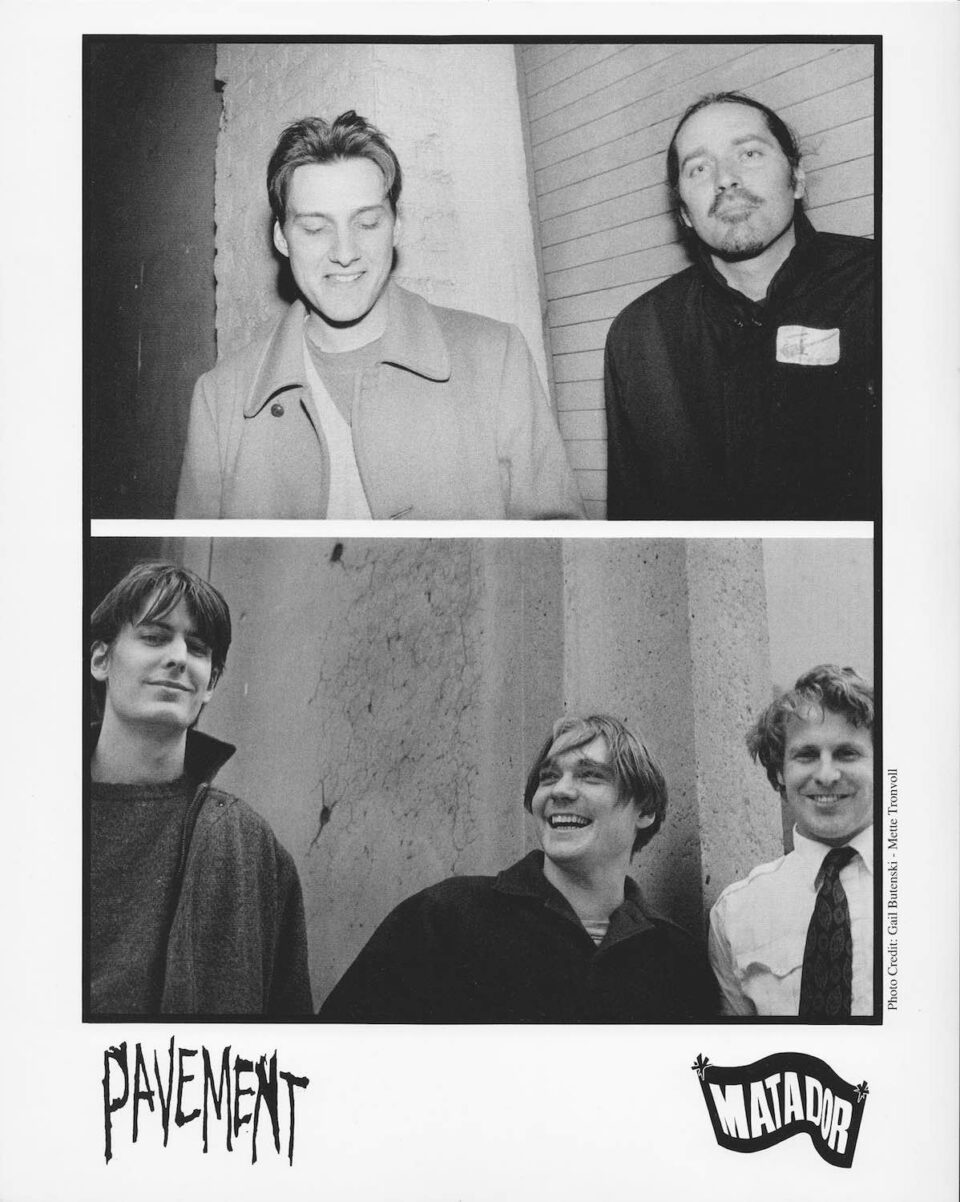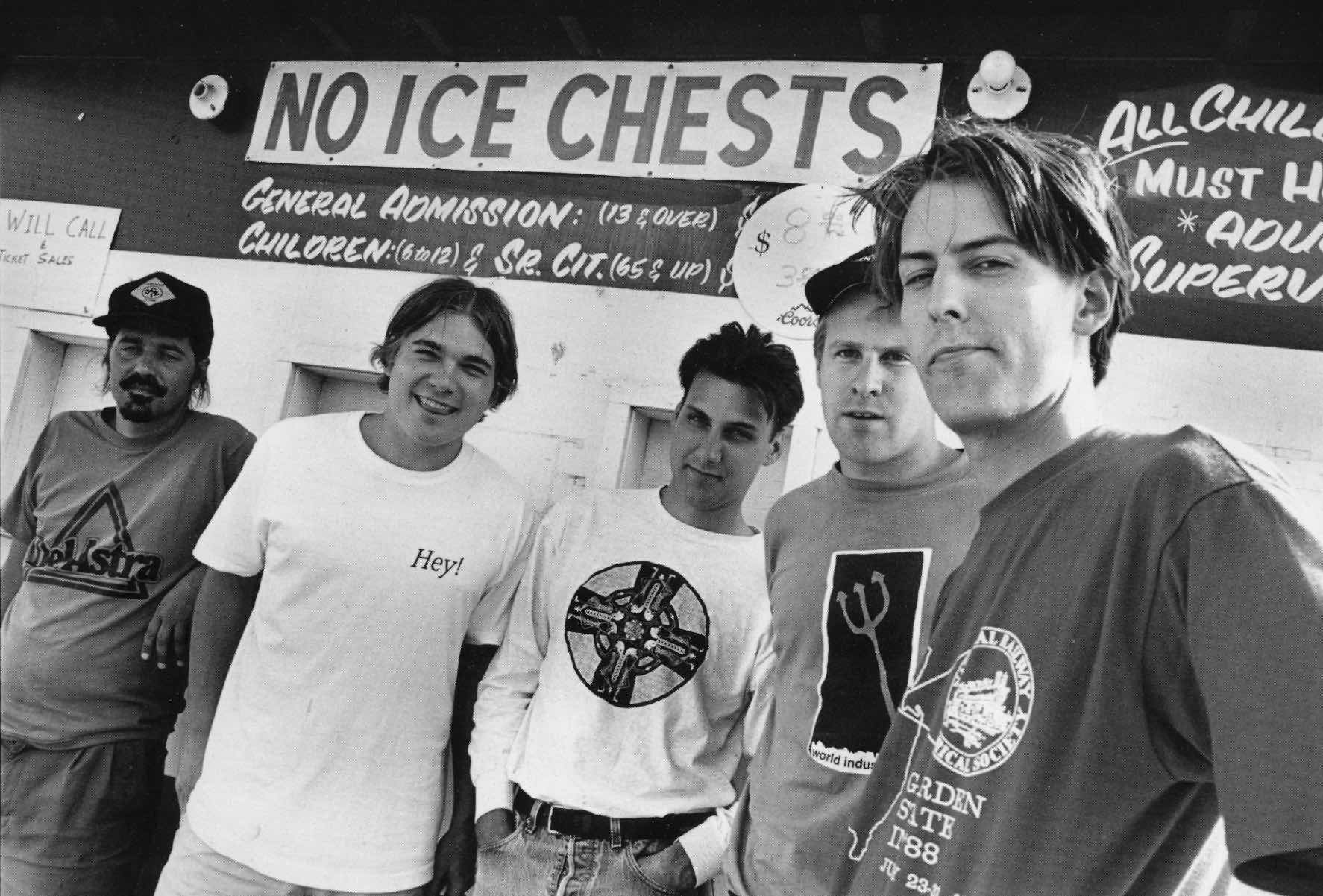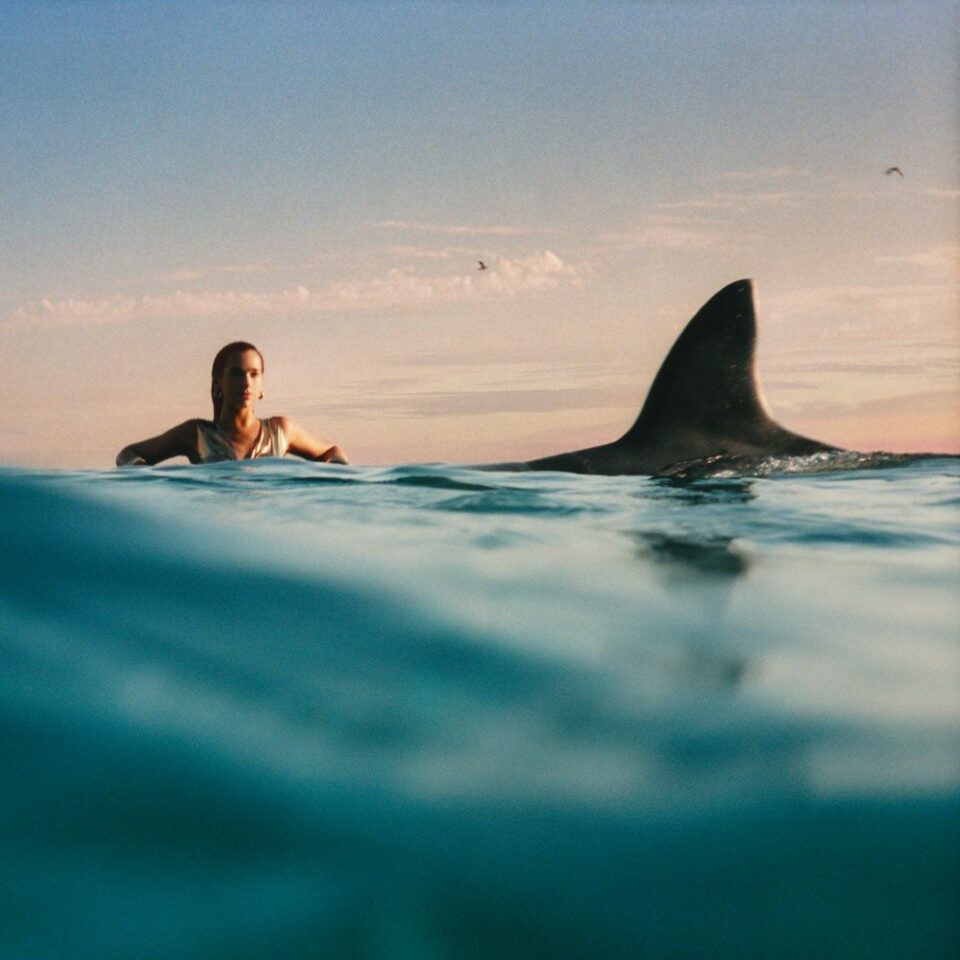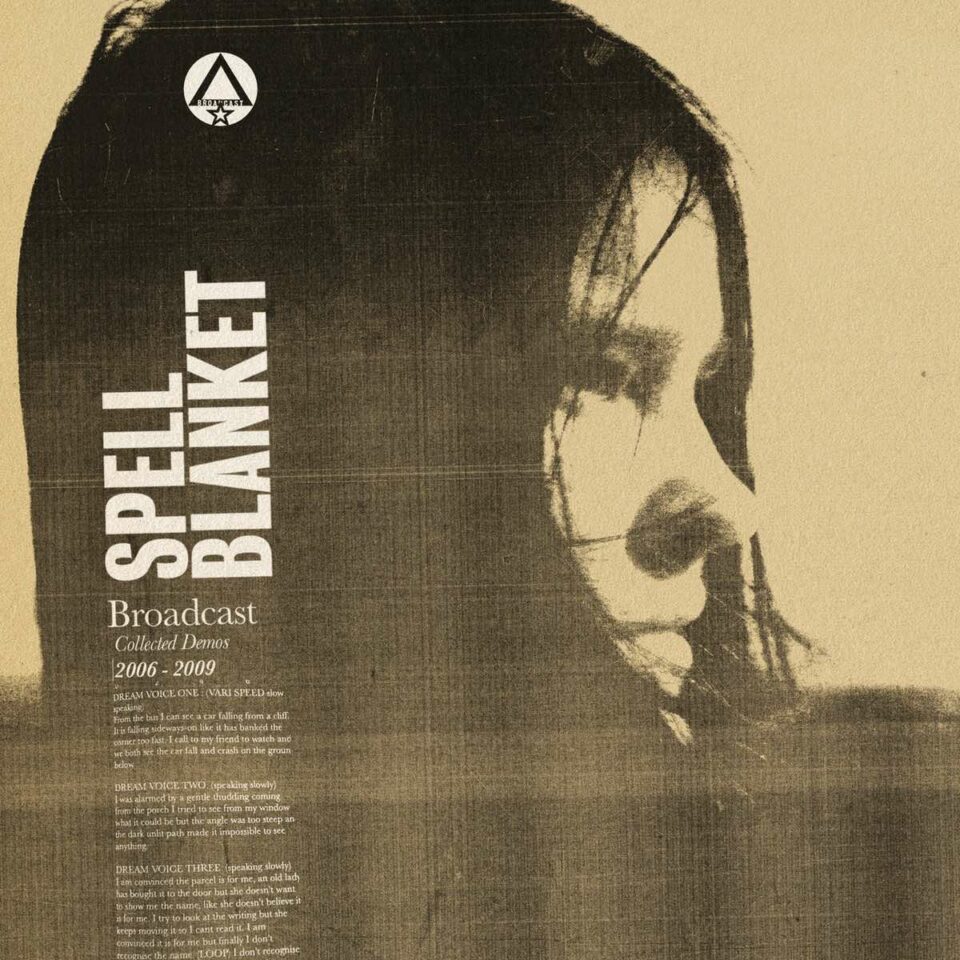It was only meant to be one show. If you’ve been following the Pavement reunion, you’ve probably heard Stephen Malkmus—the band’s fetishized chanteur—temper the significance of reunion número dos. He’s right, of course. They agreed to a Spanish sojourn, Primavera Sound, in order to shoot the breeze with old friends (Yo La Tengo, Dinosaur Jr., and Kim Gordon were among the alternarock greats from the stacked lineup)—and, as Malkmus half-joked before anything further was announced, “I’m staying in a hotel right across the street, and I have immediate entrance, and there’s beer on tap anywhere I walk, and everyone likes me and stuff.”
Asserting his trademark disinterest maintains self-preservation for both himself and his bandmates should the calls of “nostalgia bait” start to percolate. Thankfully, that’s not been the case. Indeed, unlike the perfunctory reunions of some of their peers (to pick at an old scab), Pavement’s is off to an uncharacteristically auspicious start. “Originally we were going to play one show and then see if we fell in love again,” they told Primavera’s radio program—but with shows in 13 countries booked throughout the fall, it looks like the third iteration of Pavement gets the honeymoon that never was.
If you aren’t familiar with Pavement, perhaps you think that the collegiate, button-up brand of raucous guitar pop started with Weezer, or have otherwise resisted calls to “at least try Crooked Rain” because you’ve been busy with the collapse of democracy or something. The news, in brief, is that Pavement’s initial run coincided pretty neatly with the most copacetic of decades, the ’90s, during which they were as lauded as they were misunderstood. They garnered labels that stretched from “the finest band of the ’90s” and “The Beatles of the ’90s” to “tunelessness masquerading as unconventionality and the flattest vocals since the Human League girls.” Justly, time’s arrow has all but quashed the latter take’s prevalence.
There’s a general alacrity toward giving interviews—and for performing, a carefree ebullience that replaces what was once carefree disaffectedness.
Malkmus is deemed the impetus for Pavement’s muted 1999 split. The legend goes that he handcuffed himself to the microphone stand during their final show and bemoaned, “These symbolize what it’s like being in a band all these years,” before disappearing into the Portland sunset with no official word to his colleagues or the press. Scott Kannberg, however—who, of the band’s two guitarists/songwriters, is the more earnest and spends shows “looking like the guy who cares the most”—has suggested that what Malkmus actually said was, “These symbolize what it’s like being in England.” Whether Kannberg was willing the latter to be true or has remarkable hearing remains uncertain. After the group’s dissolution was confirmed, he told NME, “We just want to rethink what it means being in a band.”
What does it mean to be in Pavement, 23 years on? In recent years the group has been subject to a reappraisal (not their first!) that verges on idolatry. Just ask Horsegirl, Momma, Camp Cope, Wet Leg, Snail Mail, Parquet Courts, Bull, Cheekface, Beabadoobee, or any of the countless acts pulling from their crooked formula—let alone permitting Malkmus to rap on one of their singles. Besides ensuring that the air of Indieland is thick with a gold-hued buzz, this external reappraisal has prompted an internal one. “When we did the [2010] reunion, I learned them all [the songs] back then. But they were still a little too close to when we were still a band,” Kannberg told Paste earlier this year. “But now for some reason, it’s way different. In my head, it’s like they have a different meaning or something.”

Malkmus concurs, telling the LA Times, “I’ve been digging into the catalog, and—I’m not just saying this—I’m really looking forward to figuring out some of these songs and playing them… I was just cranking ‘Grave Architecture’ on the YouTube. There’s some fun stuff that I even forgot existed.”
Still, like the naughty kid on a field trip, Malkmus was the first off the bus and the last back on. As recently as 2018 he noted, “I’m full-time with my life, so I don’t know if I have time for a Pavement reunion.” You can’t blame his resistance. While drummer Steve West was working as a stonemason, the frontman was making Groove Denied, his synth-pop pilot inspired by time spent living in Berlin. While percussionist/jack-of-all-trades Bob Nastanovich was honing his horse-racing, chart-calling chops, the Malk was at Beck’s studio making his fifth solo album. While bassist Mark Ibold was in Sonic Youth…Malkmus wasn’t in Sonic Youth, but he did get Kim Gordon to duet on “Refute” from 2018’s Sparkle Hard.
With a little help from TikTok, Primavera, trending noise-pop advocates, and the reposed perspective that coincides with one’s autumn years, Pavement finally seem to have reached a place they could only glimpse during their original run.
It’s perhaps surprising, then, that Pavement’s inscrutable leader is enjoying every minute. They all are. Kannberg has chronicled his song-learning journey like an excited kid picking up a guitar for the first time. Jessica Hutchins, Malkmus’ wife, is posting live clips on Instagram like she’s watching her college BF’s band slay the local social club. They’ve agreed to rank their albums—and play tennis—with Tim Heidecker. There’s a general alacrity toward giving interviews—and for performing, a carefree ebullience that replaces what was once carefree disaffectedness. They even recruited a sixth member, Rebecca Clay Cole, to take care of keyboard parts and bolster harmonies. Beavis and Butt-Head got their wish: Pavement are trying, dammit.
It’s clear in their setlists, too. An unapologetic culling of many 2010 staples—“Stop Breathin’,” Box Elder,” “Rattled by the Rush,” “Elevate Me Later,” “Starlings of the Slipstream”—evidences that they’re doing it partly for themselves, making room for an influx of tracks from the overlooked Brighten the Corners (“Transport is Arranged,” “Type Slowly,” “Embassy Row”) plus other deep cuts like “Serpentine Pad.” And, of course, the B-side-turned-TikTok sensation “Harness Your Hopes,” which was picked up by Spotify’s algorithm and catapulted to their most played song on streaming services. It incited the same jubilation as top-tier classics like “Cut Your Hair” and “Grounded” when I saw them at Primavera.
With a little help from TikTok, Primavera’s booking team, trending noise-pop advocates, and the reposed perspective that coincides with one’s autumn years, Pavement finally seem to have reached a place they could only glimpse during their original run. And in the way that they buried calculated pop beneath imprecise noise—and in the way that they obscured what they wanted to say with cryptic poetry masquerading as claptrap—perhaps a few vital conversations between friends got lost along the way. “Maybe Pavement is just not as important to him as it is to me,” Kannberg mused in 2010. “I don’t know how much the other guys care,” Malkmus wondered when the Primavera show was first announced.
Those unspoken heart-to-hearts were delivered in the ad-libbed lyrics to “Witchi Tai To,” a poignant rendition of the Jim Pepper/Harpers Bizarre tune that closed out the Primavera show. “Enjoy yourself, it’s later than you think / There’s good times and fun times I’ll never want to end / So enjoy yourself, it’s later than you think / ’Cause life goes by faster than a wink.” 2022 was the year Pavement broke, and the year it mended. FL









